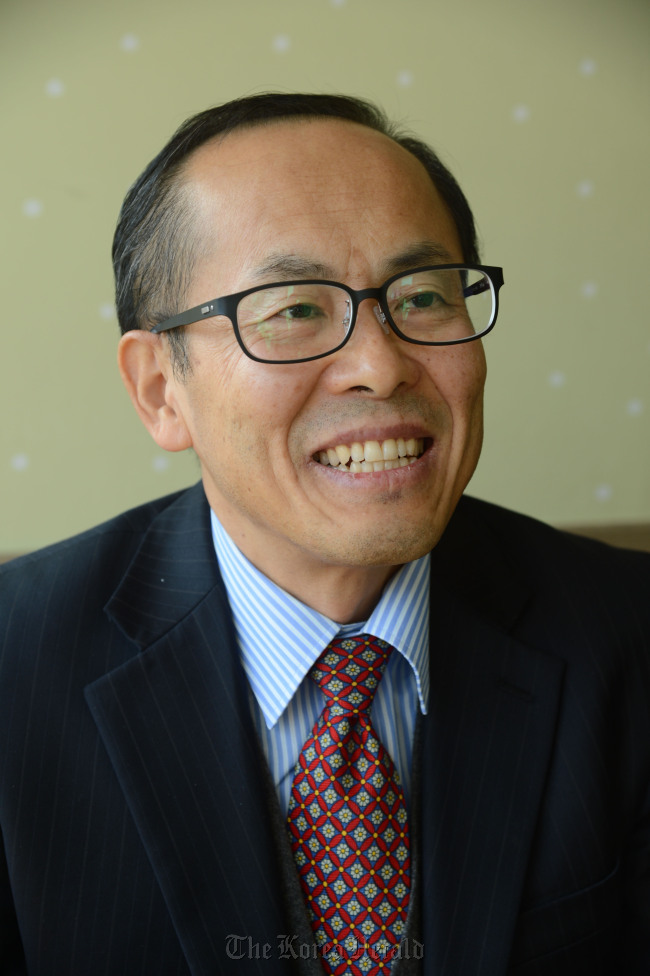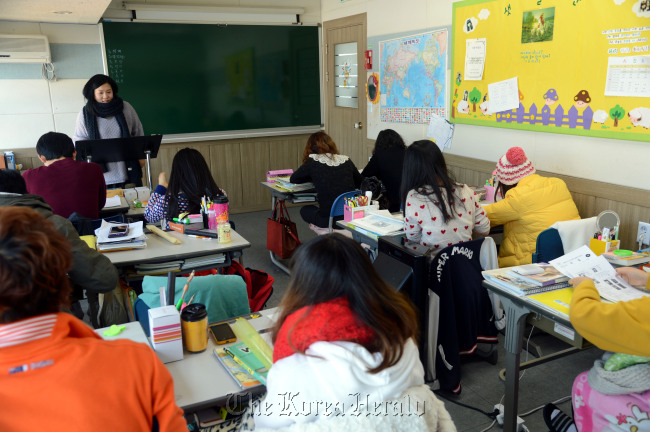Alternative school helps young N.K. refugees adapt
2012-12-10 20:13
More than 23,000 North Koreans have resettled in South Korea since the Korean War ended in 1953. But many young refugees still find it hard to adjust to the differences due in part to the lack of a proper education.
The number of teen refugees exceeded 1,600 last year, up from 421 in 2005. But the dropout rate among them stands at nearly 5 percent, more than twice the overall rate, according to a report from the Ministry of Education, Science and Technology.
“The problem is most dropout students come from broken families, and don’t have the ability to move ahead in their lives financially,” said Lee Hung-hoon, principal of Yeomyung School, in an interview with The Korea Herald.
“But that’s why our school is here,” the 54-year-old principal said.
Founded in 2004 with support from a group of local churches, Yeomyung is one of only a few alternative high schools in the country where the once-failed-refugees can resume their studies.
 |
| Lee Hung-hoon, principal of Yeomyung School |
“There are around 12 alternative schools for North Korean refugees. But we’re the only school in Seoul with full accreditation from the Education Ministry, and they can only acquire a high-school diploma here,” he added.
Located at the foot of Namsan in central Seoul, the school is only a single three-story building with four classrooms, without even a playground or facilities for outside activities.
“We are a small school with only 60 students at the moment,” the principal said.
But for students attending the small alternative institution, this is a “last ditch” effort to overcome cultural and educational gaps and to survive in this competitive society, he added.
 |
| North Korean defectors attend a class at Yeomyung School in central Seoul. Chung Hee-cho/The Korea Herald |
Students at Yeomyung, he said, cited the inability to adjust to a different culture and family issues as their main reasons for dropping out of public schools in South Korea.
“Most of the refugees didn’t have a proper primary education, and missed the crucial time of studying. And they still don’t get enough support from parents here. For instance, we have only 8 students with both parents, and for most of the rest, either their fathers or mothers still live in the North,” he said.
“For them, finances are a major barrier to completing their education.”
The principal, however, noted that by attending the Yeomyung School that barrier can be at least lowered.
The school covers all tuition fees and textbook costs as well as three meals a day. Also students from other cities can stay in the school’s dormitory.
The alternative school’s curriculum is similar to that of other public high schools here ― except that the students must also attend a special class designed to help them adjust to South Korean society.
“They learn simple things, such as how to open a bank account, and things like you probably learned when you were a child. But the refugees often say that they suffered because of hunger in the North, and now they suffer from their lack of knowledge here,” Lee said.
But the problem, he said, is that the school can accept only a limited number of students due to limited finances.
“I have to admit that it’s quite difficult to get by. Although we have some financial support from churches, it’s not enough, so I have to go out and find donations from people all over the country,” the principal said.
Before joining the Yeomyung School in March this year, he worked for many years with E.Land Group, Korea’s leading fashion retailer, and also served as the head of the company’s branch offices in Europe and China.
But he left the business and became a pastor in 2009, and over the years his enthusiasm for alternative education flourished, a passion that has led to his latest occupation.
“It’s quite hard, but I have a great passion for my role,” he said.
Most local principals are focused on sending more students to top elite colleges, but for Lee, it is getting more students to graduate.
“Many students have a part-time job to send the money to their families remaining in North Korea through brokers. They often miss class and sometimes never return to the school,” he said.
The principal said it is important to have these young refugees get a proper education. He pointed out that the dropout refugees are especially vulnerable to crime because they start from scratch in the South.
“I always tell my students that you should never give up on yourself, because education is the only way you could overcome prejudice and social discrimination in this society,” he said.
Lee insists that for the next two to three years he will work on strengthening and deepening the alternative school model.
“We’re planning to install two new classrooms, and hopefully will be able to move to a larger space, where we can have a playground.”
He is quite clear on his stance that the stand-alone alternative school has to build in South Korea.
“I hope that when our country is finally reunified, this school will be a great education role model,” he added.
By Oh Kyu-wook (596story@heraldcorp.com)
